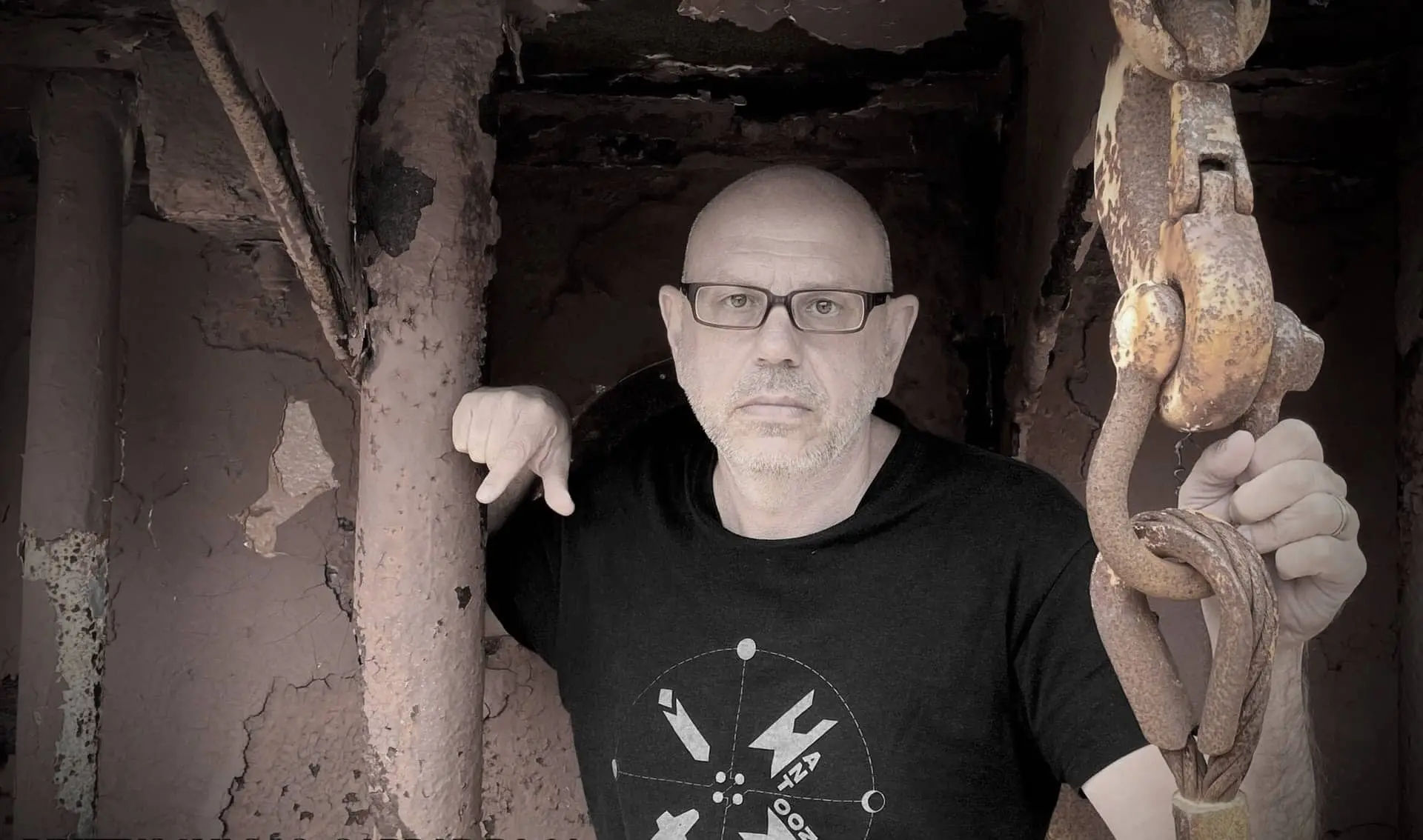
The Founder
Dimitris Lyacos | Biography
Dimitris Lyacos was born and raised in Athens, where he studied Law while also living in Venice where he started producing his literary work. In 1992 he settled in London where he studied philosophy at UCL, with analytical philosophers Ted Honderich and Tim Crane and with a special focus on Epistemology and Metaphysics, Ancient Greek philosophy and Wittgenstein. In 1992, Lyacos set about writing a trilogy under the collective name Poena Damni, referring to the hardest trial the condemned souls in Hell have to endure, i.e. the loss of the vision of God. The trilogy developed gradually during the course of thirty years. The third part (The First Death) appeared first in Greek (Ο πρώτος θάνατος) and was the first to be translated in English in 2000. Lyacos continued to write and revise his trilogy until 2018, when the English Box Set Edition appeared in print. In the meantime, the trilogy had given rise to a number of sister projects across the arts, including music, visual arts, photography, and dance. A sound and sculpture installation that toured Europe in 2004-2006 abruptly came to a halt when the works of Austrian sculptor Fritz Unegg who had created the visual part of the installation, mysteriously disappeared on their way from Vienna to Krakau as they headed for their appointment in the city’s Bunkier Sztuki.
During the years of working and reworking his trilogy, Lyacos also gave numerous lectures and readings in public venues, universities and festival across the world. He also gave interviews in journals such as Bomb, Los Angeles Review of Books, World Literature Today, and Gulf Coast, in order to elucidate upon the theoretical aspects of his work. In 2023 he completed the zeroeth book of his trilogy (Until the Victim Becomes our Own) which is due to first appear in Italy in spring 2024, published by Il Saggiatore, thus transforming his hitherto Poena Damni trilogy into a tetralogy.
While critics categorize Lyacos’ trilogy as postmodern, the author’s constant dialogue with works of the western tradition, his interest in physical science, as well as his work’s religious and anthropological concerns - and his lifelong interest in tragic poetry and epic drama - place his work outside the postmodern agenda. At the same time, Lyacos’s use of innovative, structures as well as multiple narratological techniques reinforce a perception of literature that is consonant with the author’s early concern: namely, the deep structure of tragedy rather than its formal characteristics. Unsurprisingly, the trilogy has been characterized, over the years, as an example of a post-tragic work. Homer and the Greek tradition have pride of place, with Homer and Aeschylus as an obvious reference point, while Dante and the darker aspects of romantic poetry, together with symbolism and expressionism, also permeate the trilogy. Plotwise, the first of the three pieces, Z213: Exit (Z213: ΕΞΟΔΟΣ), recounts a man's escape from a guarded city and his journey through dreamlike, sometimes nightmarish, lands. In the second book, With the People from the Bridge (Με Τους Ανθρώπους Από Τη Γέφυρα) the protagonist of Z213: Exit becomes a first-person Narrator appearing as one spectator to a makeshift play performed under the arches of a derelict train station. The third book, The First Death (Ο Πρώτος Θάνατος) opens with a marooned man on a rocky island and details his struggle for survival as well as the disintegration of his body and the unrolling of its memory banks.
As a later addition to the trilogy, the “zeroeth book” brings to completion a work that had started in “medias res”. In a 2021 interview with Lyacos for 3:AM Magazine, Andrew Barrett, Lyacos’ English translator, announced that he was in the process of translating the author's new work which was envisioned as converting Poena Damni into a tetralogy. According to Barrett, the new book explores bloodshed as the building-block in the formation of society and the eventual place of the individual in a world "permeated by institutionalized violence." The first excerpt from the book in English translation appeared in Mayday Magazine in March 2023 (chapter G) while chapter C is due to appear in Image Journal in spring 2024, the time of the publication of the Italian Edition.
© Copyright 2023 - All right reserved